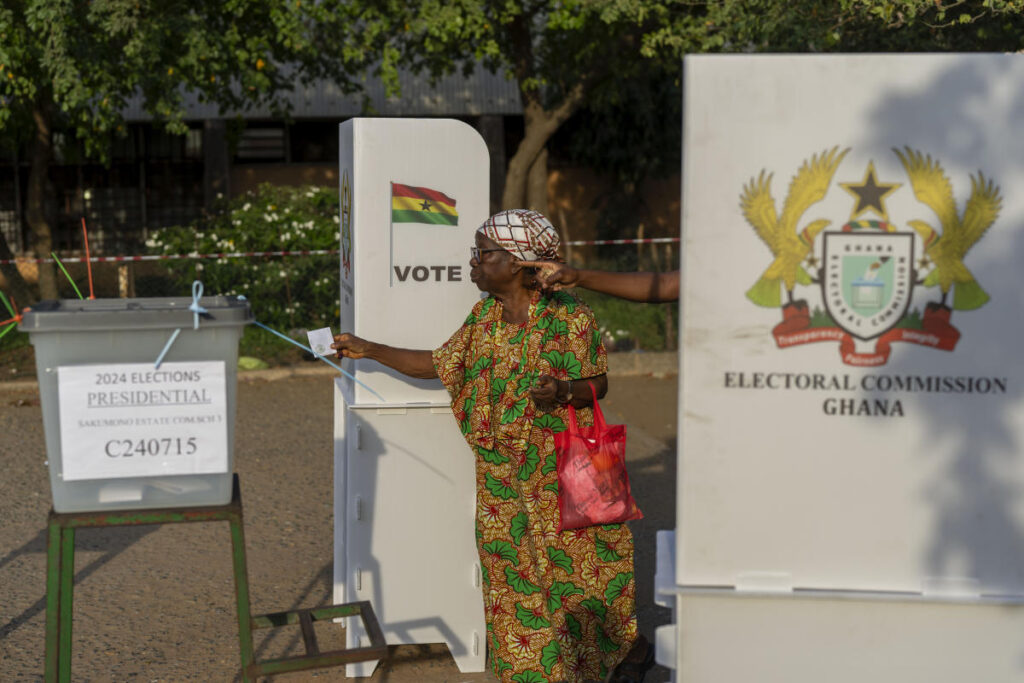On Saturday, Ghana experienced a critical moment in its political landscape as polls opened for presidential and legislative elections, which are seen as pivotal for the country’s democratic resilience amidst growing regional turmoil marked by violence and political instability. Approximately 18.7 million registered voters were called to participate in an election characterized by a disillusionment towards the candidates offered, especially given the backdrop of one of the country’s worst economic crises in recent history. Once hailed as a model of democracy in West Africa, Ghana now faces severe challenges, including soaring inflation and rising unemployment, dampening the initial optimism that defined its earlier democratic successes.
Historically, Ghana has been a beacon of democratic stability and economic prowess in the West African region, successfully navigating multiple peaceful transitions of power since the return to multiparty politics in 1992. However, the current economic turmoil has undermined this reputation significantly. As emphasized by an opinion poll from Afrobarometer, 82% of Ghanaians expressed the belief that the nation is headed in the wrong direction, reflecting widespread public discontent and distrust in the political system. This election features ten candidates; however, similar to past elections, it has devolved into a two-horse race between Vice President Mahamudu Bawumia of the ruling New Patriotic Party (NPP) and former President John Dramani Mahama of the opposition National Democratic Congress (NDC).
Bawumia, the Oxford-educated candidate and former deputy central bank governor, faces criticism for the administration’s inability to alleviate economic distress. He promised continuity in economic policies while pledging to stabilize the nation’s finances. Conversely, Mahama advocated for a comprehensive “reset” of the nation’s governance and socio-economic fabric, proposing radical changes to various sectors in response to voters’ demands for accountability and effective governance. This electoral contest represents a significant indication of citizens’ sentiment toward a political system that has not effectively addressed their most pressing concerns.
Both the NPP and NDC hold an equal number of seats in Parliament, and Saturday’s election allows the public to select 276 members. This election also underscores the stagnation in policy discourse between the two parties, as their platforms appear remarkably similar to many voters and analysts alike. Despite their claims—NDC’s social democratic identity versus NPP’s right-leaning stance—the differences in their proposed policies seem minimal, aggravating voter apathy. As such, many Ghanaians express skepticism about whether either candidate can deliver on their lofty promises, given their track records in power.
As election day unfolded, the atmosphere in Accra was vibrant, marked by energetic campaign rallies, music, and public displays of support, yet it was tinged with underlying anxiety about the country’s economic future. Ghana has been grappling with a crippling financial crisis, having defaulted on most of its foreign debt last year, which exacerbated inflation rates that peaked at 54%. Although recent months have brought slight improvements, many citizens continue to struggle with daily costs and the ongoing economic strain, which overshadows the festivities of the election.
Additionally, illegal gold mining, locally referred to as “galamsey,” represents a persistent and contentious issue within this election cycle. Ghana, recognized as Africa’s leading gold producer, faces adverse consequences from unregulated mining practices that threaten environmental integrity and exacerbate the social crisis as citizens turn to mining out of desperation amid a failing economy. Voter concerns around this issue have spurred protests and criticisms aimed at the incumbent government, calling into question its commitment to sustainable development. The overarching narrative of these elections is thus intertwined with the urgent economic realities on the ground, compelling voters to reexamine the efficacy of their political leaders in confronting the profound challenges facing the nation.

